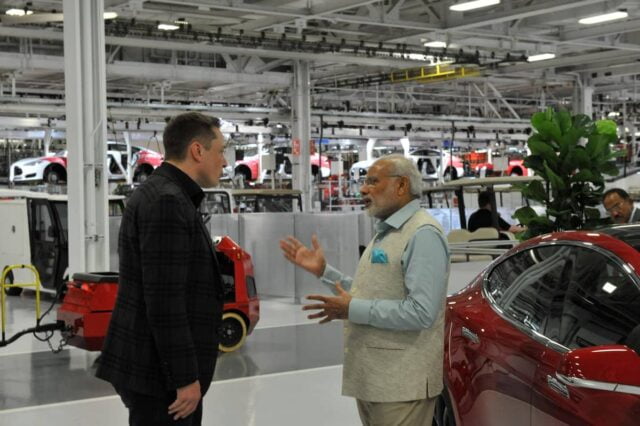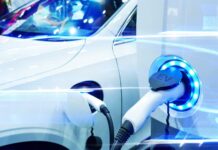Tesla has finally arrived in India, following the numerous speculations that ardent supporters of the founder, Elon Musk, had over its establishment in the country for years.
Tesla is a car-manufacturing company based in the USA and is known for its groundbreaking innovation in electric vehicles.
Tesla’s Research and Development team has registered itself with the Registrar of Companies (RoC) as Tesla India Motors and Energy Private Limited in Bangalore. Discussions regarding building its manufacturing units in Tamil Nadu, Maharashtra, Gujarat and Andhra Pradesh have already ensued.
However, do Tesla cars have the necessary foundation or the grit of the Indian driver to survive our desi road conditions and the like?
How Affordable Is A Tesla Car For An Indian?
In India, cars have usually been expensive compared to other countries. Tesla has set out to launch around five models of cars by this year.
Tesla 3, the first model that will launch by March, will cost around 60 lakh rupees. While Model S would go up to 1 crore rupees, Model X will cost close to 2 crore rupees!
Tesla cars when it sees Tata nano on indian roads.#ElonMusk pic.twitter.com/ce3KAzk2hp
— Jeetu (@gentleman_jitu) January 13, 2021
https://twitter.com/mrwildborn7/status/1349227174381850625
The Indian EV (Electric Vehicles) market has been slow for a long time. Compared to Tesla, TATA Nexon (one of the electricity-run cars in India) starts from around 13.99 lakh rupees only, which is twice the price of the same model that runs on petrol.
However, the maintenance cost of EV is significantly lesser than normal cars, since the cost of petrol is around 80 rupees/litre nowadays. Yet, would Indians be willing to make such a change that demands a high first-time investment?
The Great Indian Road Problem
Indian roads have been a victim of poor infrastructure and maintenance – we have witnessed many pot-holes and never-ending constructions.
Although the Motor Vehicles Amendment Act was legislated in 2019, aiming to improve road safety, the number of road fatalities in India is still high. Three million vehicles were registered in India as of 2019, making the country heaviest in terms of road traffic.
Read More: Watch: 5 Elon Musk Inventions (Other Than Tesla) That Are Changing The World
Funnily enough, Harley Davidson halted its operation in India due to dismal market growth, and one among the reasons for the same was that its technical design wasn’t tuned enough to function properly on Indian roads.
Customers used to always report complaints regarding regular malfunctioning.
#ElonMusk and Modi ji planning "How to launch #Tesla Cars on Indian Roads. pic.twitter.com/zoofry6FIY
— Sarcasto (@Sarco69) January 13, 2021
According to the Road Accidents in India report, there were a total of 449, 002 road accidents in 2019. Will electric cars be able to handle such poor road conditions?
Less Availability Of Charging Ports
To state hard-hitting facts, India only has around 500 charging ports for electric vehicles when a minimum of 2600 is feasibly required. As of September 2020, the government had mulled over putting up at least one charging kiosk in the 69,000 petrol pumps that India currently has.
https://twitter.com/divyangpm/status/1349311934357590016
The Minister of Power, R.K. Singh, proposed to issue an order to all oil-marketing companies to do so in time. They believed that such a change would also encourage people to purchase EV (Electric Vehicles).
However, the plan hasn’t been implemented yet, and it also doesn’t consider the fact that charging a vehicle takes a considerable amount of time. Tesla 3 takes around 8 hours to attain full charge.
It would be fascinating to encounter “current ka bill kitna aaya” gossip among neighbours once Tesla enters Indian homes.
Lack Of Awareness And Service Centers
Lastly, considering there is a lack of general awareness about pollution and environmental sustainability in India already, generating public consensus on the fact that electric cars will be a huge step towards curbing environmental issues caused by oil-run vehicles will be a tremendous task.
Not just that, normal car workshops do not have the required knowledge to offer maintenance services for electric vehicles, meaning that one may have to go far and wide to find a service centre.
However, there is still hope. From 2019 to 2020, India witnessed a surge in the purchase of EVs. Around 1.56 lakh EVs were sold in India, which includes 90,000 electric rickshaws and 1.52 lakh two-wheelers. Yet, only 3,400 electric cars were sold, which is a very disappointing figure.
Will Tesla be able to compete effectively in the competition to increase its market growth? Will it be able to incite interest in the public to purchase EV cars?
Only time will tell.
Image Credits: Google Images
Sources: Times of India, ZigWheels, The Print + more
Find the blogger: @axelredwit
This post is tagged under: when is tesla coming to india, sustainability of electric cars, electric vehicles in india, elon musk, elon musk invests in india, car manufacturing in india, car sales in india, how many road accidents a year in india, why did harley davidson leave india, condition of indian roads, purchase of electric cars in india, how many electric rikshaws purchased in india, cost of electric vehicles, tesla 3, tesla x, tata nexon, electric car manufacturing in india, cost of maintaining electric cars in india, environmental benefit of electric cars, growth of car market, automobile market, petrol pumps, harmful effect of oil run cars





































